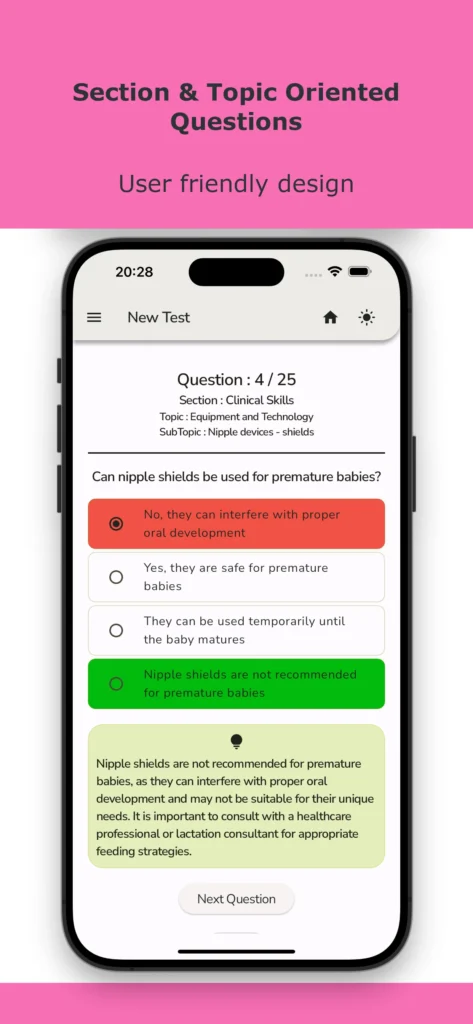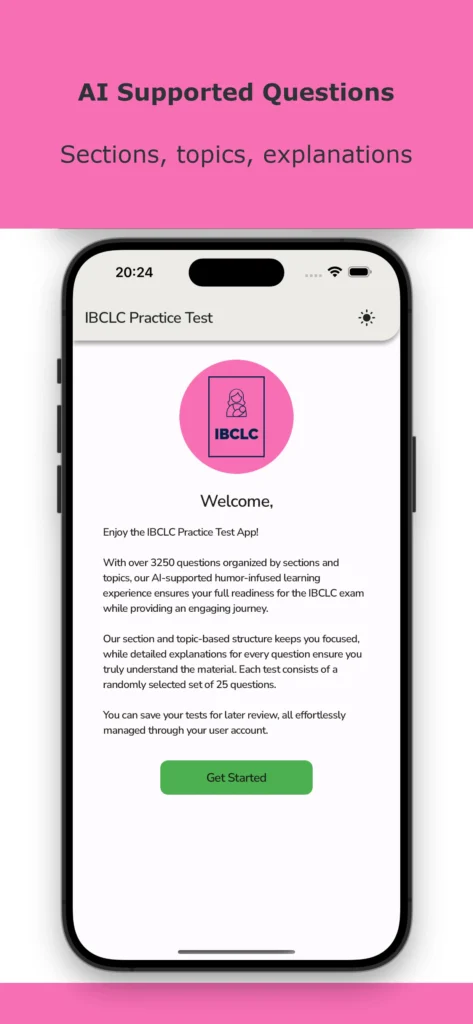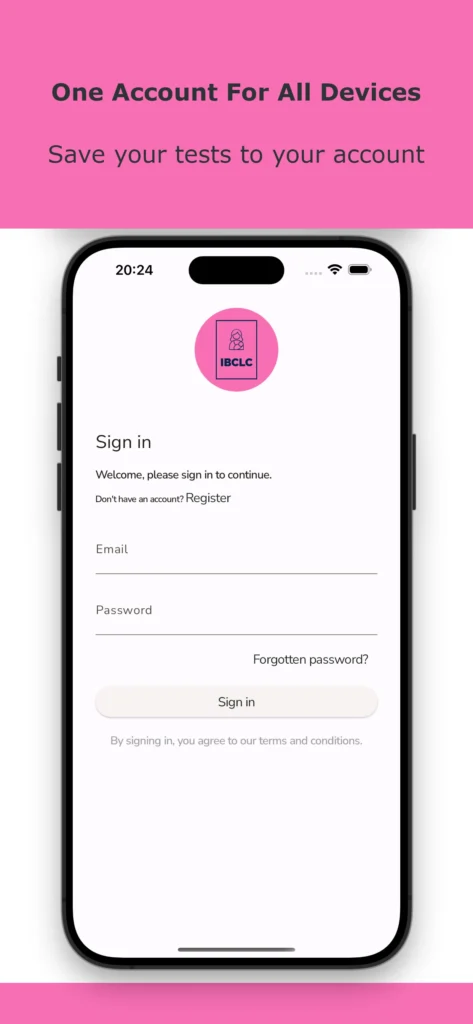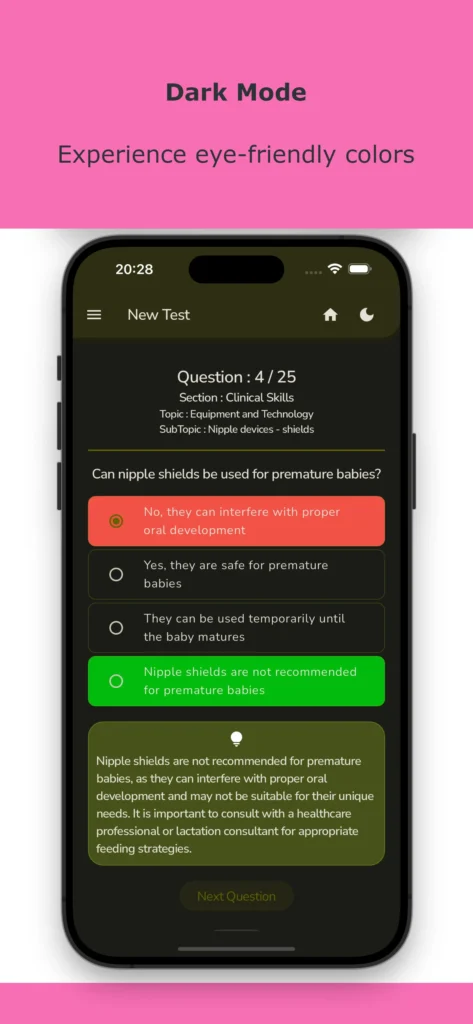Introduction
Welcome to our comprehensive guide on how long it takes to become an International Board Certified Lactation Consultant (IBCLC). If you’re passionate about supporting breastfeeding mothers and infants, becoming an IBCLC can be a rewarding career choice. In this section, we’ll explore the time and effort required to achieve this certification and provide you with valuable insights to help you navigate the process.
Training and Certification
Training to Become an IBCLC
Becoming an International Board Certified Lactation Consultant (IBCLC) requires a significant amount of training and education. The journey to becoming an IBCLC involves a combination of academic coursework, clinical experience, and passing a comprehensive exam.
To start your path towards becoming an IBCLC, you will need to meet the eligibility requirements set by the International Board of Lactation Consultant Examiners (IBLCE). These requirements include:
- Completing a minimum of 90 hours of lactation-specific education, which covers topics such as anatomy and physiology of lactation, infant development, and breastfeeding management.
- Obtaining a minimum of 1,000 hours of clinical experience in providing lactation care to breastfeeding families. This experience can be gained through working in hospitals, clinics, or private practice under the supervision of a qualified IBCLC.
- Completing a minimum of 5 hours of education in professional ethics and scope of practice.
Once you have met the eligibility requirements, you can begin the process of preparing for the IBCLC exam.
Preparing for the IBCLC Exam
The IBCLC exam is a comprehensive exam that assesses your knowledge and skills in lactation management. It covers a wide range of topics, including breastfeeding physiology, infant development, common breastfeeding challenges, and ethical considerations.
To prepare for the exam, many aspiring IBCLCs choose to enroll in a comprehensive lactation consultant training program. These programs provide in-depth education and training in all aspects of lactation management, helping you develop the knowledge and skills needed to pass the exam.
It is important to note that the length of time it takes to prepare for the exam can vary depending on your individual circumstances. Some individuals may be able to complete their training and preparation in a few months, while others may take longer.
Timeline for Becoming an IBCLC
The timeline for becoming an IBCLC can vary depending on several factors, including the availability of training programs, the amount of time you can dedicate to studying and gaining clinical experience, and the scheduling of the IBCLC exam.
On average, it can take anywhere from 1 to 3 years to complete the necessary training, gain the required clinical experience, and pass the IBCLC exam. This timeline includes the time it takes to meet the eligibility requirements, complete the required education and clinical experience, and prepare for and pass the exam.
It is important to remember that becoming an IBCLC is a journey that requires dedication, hard work, and a commitment to ongoing professional development. Once you have become an IBCLC, you will need to maintain your certification by completing continuing education requirements and staying up-to-date with the latest research and best practices in lactation management.
Career Path
How to Become an IBCLC
If you’re passionate about helping mothers and babies with breastfeeding, becoming an International Board Certified Lactation Consultant (IBCLC) can be a rewarding career choice. Here’s a breakdown of the steps involved in the career path to becoming an IBCLC.
Educational Requirements
To become an IBCLC, you need to meet specific educational requirements. These requirements include:
- Completion of at least 90 hours of lactation-specific education, which covers topics such as anatomy and physiology of lactation, infant development, and breastfeeding management.
- Completion of at least 1,000 hours of clinical practice in lactation consulting, supervised by an IBCLC.
- Completion of a minimum of 5 hours of communication skills training.
Exam and Certification
Once you have completed the educational requirements, you are eligible to sit for the IBCLC exam. The exam is administered by the International Board of Lactation Consultant Examiners (IBLCE) and consists of multiple-choice questions that assess your knowledge and skills in lactation consulting.
Passing the exam grants you the title of IBCLC and allows you to practice as a lactation consultant. It is important to note that the IBCLC certification is valid for 5 years, and recertification is required to maintain your credentials.
Timeframe
The time it takes to become an IBCLC can vary depending on several factors, including your prior education and experience. On average, it can take anywhere from 2 to 5 years to complete the educational requirements, gain the necessary clinical experience, and pass the exam.
Keep in mind that this timeframe is a general estimate and can be shorter or longer depending on individual circumstances. Some individuals may already have a background in healthcare or lactation, which can expedite the process, while others may need to complete additional coursework or gain more clinical experience.
Continuing Education
As an IBCLC, it is important to stay up-to-date with the latest research and advancements in lactation consulting. Continuing education is a requirement for recertification and helps you maintain your knowledge and skills.
There are various ways to fulfill the continuing education requirements, including attending conferences, workshops, and webinars, as well as completing online courses and reading relevant literature.
Conclusion
Becoming an IBCLC is a fulfilling career path that requires dedication, education, and clinical experience. While the process may take several years, the rewards of helping mothers and babies with breastfeeding make it worthwhile. If you’re passionate about lactation consulting, consider embarking on the journey to become an IBCLC.
Day-to-Day Aspects
What Does a Day in the Life of an IBCLC Look Like?
As an International Board Certified Lactation Consultant (IBCLC), your day-to-day activities will vary depending on your work setting and client needs. However, there are some common aspects that you can expect as an IBCLC.
One of the primary responsibilities of an IBCLC is to provide lactation support and guidance to breastfeeding individuals and their families. This may involve conducting one-on-one consultations, either in person or virtually, to assess breastfeeding challenges, provide education on proper latch and positioning, and offer guidance on increasing milk supply.
IBCLCs also play a crucial role in promoting breastfeeding education and awareness in their communities. This may include conducting group classes or workshops for expectant parents, healthcare professionals, and community organizations. These educational sessions aim to provide evidence-based information on the benefits of breastfeeding, common challenges, and strategies for successful breastfeeding.
Collaboration and Networking
IBCLCs often collaborate with other healthcare professionals, such as pediatricians, obstetricians, and nurses, to ensure comprehensive care for breastfeeding individuals and their infants. This collaboration may involve attending multidisciplinary team meetings, sharing information and resources, and coordinating care plans.
Networking with other lactation consultants and professionals in the field is also essential for staying updated on the latest research, best practices, and professional development opportunities. IBCLCs may participate in local or international conferences, join professional organizations, and engage in online forums or discussion groups to connect with peers and expand their knowledge base.
Documentation and Administrative Tasks
Like any healthcare profession, IBCLCs are responsible for maintaining accurate and confidential client records. This includes documenting client assessments, interventions, and progress notes. IBCLCs may also need to complete insurance forms, billing, and other administrative tasks related to their practice.
Additionally, IBCLCs may engage in continuous professional development activities to enhance their knowledge and skills. This can involve reading research articles, attending webinars or workshops, and pursuing advanced certifications or specialized training in specific areas of lactation support.
Flexibility and Work-Life Balance
One of the advantages of being an IBCLC is the flexibility it offers. Many IBCLCs have the option to work independently, allowing them to set their own schedules and choose their clients. This flexibility can be particularly beneficial for those with family or other personal commitments.
However, it’s important to note that the workload and schedule of an IBCLC can vary. Some IBCLCs may work part-time, while others may have a full-time caseload. The number of clients seen in a day or week can also fluctuate depending on demand and individual practice preferences.
Overall, being an IBCLC requires a combination of clinical expertise, compassion, and a commitment to supporting breastfeeding individuals and their families. It is a rewarding profession that allows you to make a positive impact on the health and well-being of both infants and their parents.
Key Takeaways
How Long Does It Take to Become an IBCLC?
Becoming an International Board Certified Lactation Consultant (IBCLC) is a rewarding career path for those passionate about supporting breastfeeding mothers and infants. If you’re considering this profession, you may be wondering how long it takes to become an IBCLC. While the exact timeline can vary depending on individual circumstances, there are some general steps and requirements to keep in mind.
Educational Requirements
To become an IBCLC, you must first meet the educational requirements set by the International Board of Lactation Consultant Examiners (IBLCE). These requirements include:
- Completion of at least 90 hours of lactation-specific education
- Completion of at least 1,000 hours of supervised clinical experience in lactation
- Completion of a minimum of 5 college-level courses in specific subjects related to lactation
Meeting these educational requirements can take anywhere from several months to a few years, depending on your availability and the programs or courses you choose. It’s important to research and select reputable educational programs that are recognized by the IBLCE.
Exam Preparation
Once you have completed the educational requirements, the next step is to prepare for the IBCLC exam. This exam is comprehensive and covers various aspects of lactation and breastfeeding. It’s recommended to allocate sufficient time for exam preparation, which may include self-study, attending review courses, and participating in study groups.
The duration of exam preparation can vary depending on your prior knowledge and experience in lactation. Some individuals may need several months of focused study, while others may require more time. It’s important to create a study plan and allocate dedicated time each day or week for exam preparation.
Exam Registration and Scheduling
Once you feel adequately prepared, you can register for the IBCLC exam through the IBLCE website. The exam is typically offered twice a year, in July and January. After registering, you will receive information about exam scheduling and location options.
It’s important to note that the exam is not administered online and requires in-person attendance at a designated testing center. The duration of the exam is approximately 4 hours, and it consists of multiple-choice questions and case studies.
Final Steps and Certification
After successfully passing the IBCLC exam, you will need to complete additional steps to obtain your certification. These steps include:
- Submitting an application for certification
- Providing documentation of your educational requirements and clinical experience
- Paying the certification fee
Once your application is reviewed and approved by the IBLCE, you will receive your IBCLC certification. This certification is valid for 5 years, and you will need to fulfill continuing education requirements to maintain your certification.
Conclusion
Becoming an IBCLC requires dedication, education, and clinical experience. The timeline to become an IBCLC can vary depending on individual circumstances, but it generally involves completing the educational requirements, preparing for the exam, registering and scheduling the exam, and completing the final steps for certification. If you’re passionate about supporting breastfeeding mothers and infants, the journey to becoming an IBCLC can be a fulfilling and rewarding one.
Conclusion
In conclusion, becoming an IBCLC (International Board Certified Lactation Consultant) is a rigorous process that requires dedication, time, and commitment. The journey to becoming an IBCLC can vary depending on an individual’s prior experience and education. However, on average, it takes about 2-5 years to complete all the necessary steps and requirements.
The first step in becoming an IBCLC is to meet the eligibility criteria set by the International Board of Lactation Consultant Examiners (IBLCE). This includes completing specific health science courses, lactation-specific education, and clinical practice hours. These requirements ensure that aspiring IBCLCs have a solid foundation of knowledge and practical experience in lactation and breastfeeding support.
Once the eligibility criteria are met, candidates can then apply to sit for the IBCLC exam. The exam assesses the candidate’s knowledge and skills in various areas related to lactation and breastfeeding. It covers topics such as anatomy and physiology of lactation, infant feeding practices, counseling skills, and ethical considerations.
After successfully passing the exam, individuals become IBCLC candidates and must complete additional requirements to obtain full certification. This includes completing a certain number of supervised clinical hours, which provide hands-on experience in supporting breastfeeding families. Candidates also need to complete continuing education credits to stay updated on the latest research and best practices in lactation support.
Overall, the process of becoming an IBCLC requires a significant investment of time and effort. However, it is a rewarding and fulfilling career path for those passionate about supporting breastfeeding families. IBCLCs play a crucial role in promoting and protecting breastfeeding, providing evidence-based guidance and support to mothers and infants.
If you are considering a career as an IBCLC, it is important to carefully evaluate the requirements and commitments involved. Take the time to research educational programs, mentorship opportunities, and resources available to support your journey. With dedication and perseverance, you can become a knowledgeable and trusted professional in the field of lactation and breastfeeding support.








